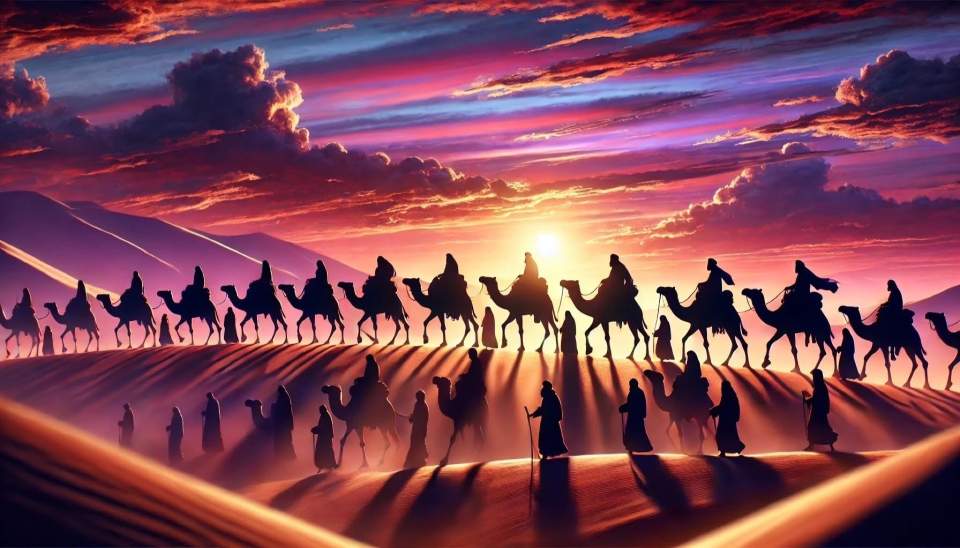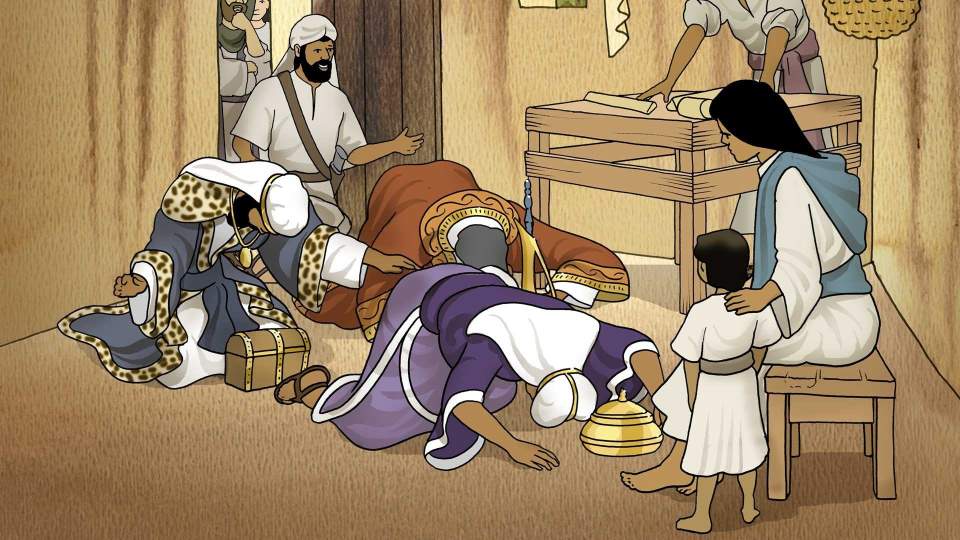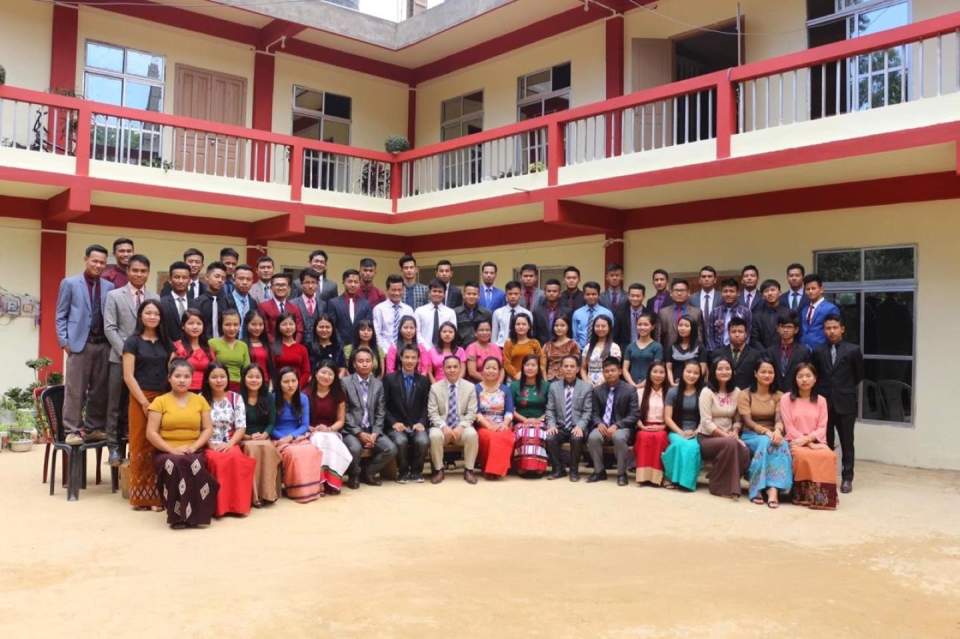The Magi, India, and the Redemptive Plan of God

Praise God that His redemptive plans for us and for all humanity always exceed anything we can conceive. This is a good thing to remember as we enter the Advent Season.
The quest of the magi, or wise men, to find the newborn King of the Jews is a good reminder of this vital truth.
We find their account in Matthew’s gospel (2:1-13).
The magi are rather enigmatic persons. Where did they come from? How many were there? What did they do to gain the name “magi”? The scriptures give us no details on these things.
Generally speaking, magi were “wise” in that they possessed secret knowledge. They were sorcerers and magicians. Since they came from “the east,” they could have come from Persia, Babylon or Nabataea (ancient Arabia). But they could also have come from India or even China. Many think they were Zoroastrians, but they could also have included Hindus, Buddhists or Taoists. They could have come from polytheistic backgrounds.

They were definitely not Jewish. They did not embark on an easy journey. Whatever their number, they must have traveled a long distance with an entourage for safety against bandits and dangerous animals along the way. When they arrived in Jerusalem, they must have created a sensation with their exotic garb and manners.
Even more, they shook Jerusalem—and King Herod—with this greeting: “Where is He who has been born King of the Jews? For we saw His star in the east and have come to worship Him.”
The chief priests and scribes confirmed to them by the scriptures that the King would be born in Bethlehem. After the star led them to the place where the King lived with His earthly family, Matthew records they “rejoiced with exceedingly great joy” (2:10). This sign vindicated their journey of hundreds (maybe thousands) of miles, taken at great risk over many weeks or months.
We should note by contrast that the Jerusalem religious establishment never traveled the few miles to Bethlehem to behold their King. Did they fear Herod? Did pride blind them to the possibility that this group of exotic Gentile pagans might have knowledge of God’s ways that they, the chosen people of God, did
not have?
The magi found the infant King and his family in a home. They displayed great humility and surrender, falling prostrate before Him in a position and attitude of genuine worship. It is not hard to imagine that they also wept in joy as they fulfilled their risky mission and realized they not only entered the presence of a King but God Himself. Their three gifts—gold, frankincense and myrrh—were the kinds of gifts that are given to a king.
Why should this group of pagan sorcerers and magicians from far away take such a risky venture to seek out the King of a realm far from their own land(s)?
In Ecclesiastes 3:11, the writer tells us that God has “set eternity in their hearts without which man will not find out the work which God has done, from the beginning even to the end.” The magi lived, as we do, in a world where life is a vapor. We are here for a short time and then vanish away. As creatures of God made in His image, we are made for much more, and we retain that knowledge of eternity, whoever we are and wherever we live.

Several decades after the magi visitation, Paul addressed Greek philosophers and thinkers on Mars Hill, telling them that God has “made every nation of men...so that men would seek Him and perhaps reach out for Him and find Him, though He is not far from each one of us” (Acts 17:26,27). He speaks to them in the languages they best understand.
In many languages, God communicates with people of varying personalities, backgrounds and cultures. God spoke to the magi of Himself in the language they best knew and understood: through the stars.
Today, God continues to speak to people like He did to the magi. Known and feared—and avoided—for their warlike spirit and headhunting, the Mizos were seemingly hopeless savages who still retained a vague knowledge of Pathian, a “holy father,” who they regarded as a Supreme Being. They even offered sacrifices to Him.
Sometime in the 19th century, a Mizo prophet named Darphawka had a dream. He reported the dream to his people, saying, “A great light will come from the west and shine upon Mizo[ram]. Follow the light...for the people who bring it will be the ruling race [white]...This light may not shine in my lifetime, but when it comes, follow it! Follow it!!”
The Mizos spoke of a sacred book that Pathian gave to their forefathers, but they lost it. The white men who came to them would bear with them the book that was long lost and which would transform their society—if only they would find it.
The British authorities did not permit outsiders to visit the Mizos, then known as “Lushai” or “murderers.” In 1894, God enabled two Welsh missionaries to elude the British authorities and visit these forbidden people. What happened next defied the expectations of everybody.
Through the missionaries, the Lushai found their lost book! Within a few short years, they completely changed. They ceased living like savages. They hungered for literacy so they could read their Bibles and live like people of God. After the missionaries developed a written language, they became the second highest literate state in India, second only to Kerala.

In other ways, the gospel revolutionized their whole culture. Husbands started treating wives with respect. They adopted rational thinking and forsook superstition. Many sought college educations, not just to earn more money, but to have knowledge and wisdom to better serve the greater community and world in the name of Christ.
They improved in personal health, hygiene, and public sanitation. Their life expectancies lengthened dramatically. They ended tribal warfare and rivalry among chieftains. They transformed their concepts of music and art. They adopted Christian forms of marriage. They adopted Christian standards for those running for public office. The crime rate plummeted.
They subjected all things to the scriptures, discarding the bad, keeping the good. Over the years, the Christian faith has become the strongest force in the land.
The dramatic transformation of the Mizos has brought about a unique attitude toward the Great Commission. Perhaps more than any people group in the world, the Mizos see the fulfillment of the Great Commission, not as an option, but as part of their cultural identity. After all, the Great Commission radically transformed them, making them what they are now.
When they survey the world beyond, in India and the troubled worlds of neighboring Bangladesh and Burma, they see a complex of ethnic groups that need the same gospel transformation that changed their
own destiny.

The Great Commission is the special calling God has put upon the people of Mizoram—to reach the rest of the world that does not yet know the transforming power of Jesus Christ. As one of them has said, they see this obedience to the Great Commission as “essential to our survival as a people,” not the calling of a few, but of a whole culture.
India Gospel Outreach first became involved with evangelistic outreach through the Mizo people after hearing from friends and graduates of India Bible College regarding the unique ministry of Pastor L.M. Andrew of Aizawl, Mizoram’s capital city. Pastor Andrew comes from the same kind of background shared by the rest of his people.
These high recommendations from many people moved India Gospel Outreach to partner with him and start Mizoram Bible College in 2008. Through Mizoram Bible College, India Gospel Outreach trains men and women to evangelize northeast India and other places where the gospel has never gone. In so doing, the Mizos bow their knees to the King sought by the magi long ago.
Pray that in 2025, our gospel vision for India and the world will increasingly match God’s own redemptive plan for all peoples, whatever their personalities, ethnic and/or cultural backgrounds.






